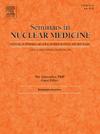人工智能用于药物发现:最新进展和未来展望。
IF 5.9
2区 医学
Q1 RADIOLOGY, NUCLEAR MEDICINE & MEDICAL IMAGING
引用次数: 0
摘要
人工智能(AI)已经成为医学图像分析的关键工具,通过改进诊断、分期、预测和反应评估,显著增强了药物发现。在高水平上,人工智能驱动的图像分析可以量化和综合以前定性的成像特征,促进新的疾病特异性生物标志物的识别,患者风险分层,预后和不良事件预测。此外,人工智能可以通过捕捉成像“表型”随时间的变化来协助评估反应,从而根据实时分析优化治疗计划。将这种新兴技术整合到药物发现管道中,有可能通过协助目标识别和患者选择来加速新药物的识别和开发,并通过高通量、可重复和数据驱动的见解来降低试验失败的发生率和成本。人工智能应用的持续进步将塑造医学成像的未来,最终促进更高效、准确和量身定制的药物发现过程。在此,我们全面概述了人工智能如何增强医学成像,为药物开发和治疗策略提供信息。本文章由计算机程序翻译,如有差异,请以英文原文为准。
Artificial Intelligence for Drug Discovery: An Update and Future Prospects
Artificial intelligence (AI) has become a pivotal tool for medical image analysis, significantly enhancing drug discovery through improved diagnostics, staging, prognostication, and response assessment. At a high level, AI-driven image analysis enables the quantification and synthesis of previously qualitative imaging characteristics, facilitating the identification of novel disease-specific biomarkers, patient risk stratification, prognostication, and adverse event prediction. In addition, AI can assist in response assessment by capturing changes in imaging “phenotype” over time, allowing for optimized treatment plans based on real-time analysis. Integrating this emerging technology into drug discovery pipelines has the potential to accelerate the identification and development of new pharmaceuticals by assisting in target identification and patient selection, as well as reducing the incidence, and therefore cost, of failed trials through high-throughput, reproducible, and data-driven insights. Continued progress in AI applications will shape the future of medical imaging, ultimately fostering more efficient, accurate, and tailored drug discovery processes. Herein, we offer a comprehensive overview of how AI enhances medical imaging to inform drug development and therapeutic strategies.
求助全文
通过发布文献求助,成功后即可免费获取论文全文。
去求助
来源期刊

Seminars in nuclear medicine
医学-核医学
CiteScore
9.80
自引率
6.10%
发文量
86
审稿时长
14 days
期刊介绍:
Seminars in Nuclear Medicine is the leading review journal in nuclear medicine. Each issue brings you expert reviews and commentary on a single topic as selected by the Editors. The journal contains extensive coverage of the field of nuclear medicine, including PET, SPECT, and other molecular imaging studies, and related imaging studies. Full-color illustrations are used throughout to highlight important findings. Seminars is included in PubMed/Medline, Thomson/ISI, and other major scientific indexes.
 求助内容:
求助内容: 应助结果提醒方式:
应助结果提醒方式:


